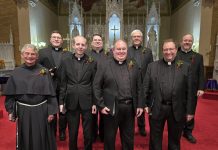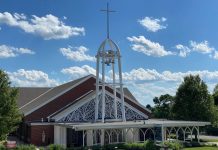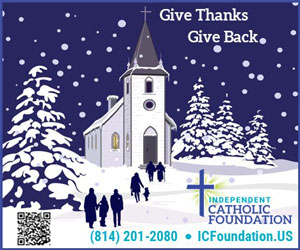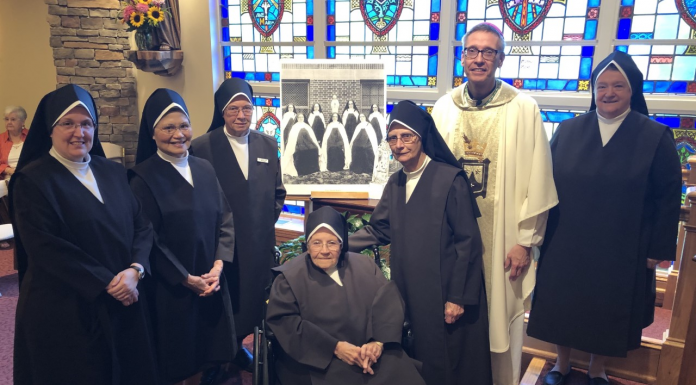Column by Father Jonathan Dickson
Anytime I consider what it means to give thanks, I am always drawn back to Luke 17:11-19. This is the passage where Jesus cures ten lepers, but only one returns to give him thanks. The one that returns is a Samaritan, who not only would have been stigmatized by his leprosy, but as a Samaritan would have been snubbed by the Jewish faithful. And so ten are healed, but only one returns to give thanks. As we enter this Thanksgiving, holiday I would likely to briefly reflect on why this word “thanksgiving” is essential to who we are as humans and as disciples of Jesus Christ. While Thanksgiving is a secular holiday, people from all faith backgrounds across the country bring their own religious values into this day. In the Catholic Church the source and summit of our life is celebrated in the Eucharist which translates into “thanksgiving.” We come to worship every Sunday precisely to give thanks to God. And, I would argue that this longing to give thanks is not just a religious habit ingrained in us; it is part of our human nature. It is religious and anthropological at the same time. Having considered the story of the leper and our natural desire to give thanks, I would like to write a brief reflection on this need and why it is so important to our lives.
In the story of the ten lepers we see that God’s grace is given without needing anything in return. Do not forget; all ten lepers were healed. Grace asked for, grace received. But when we read through the story, we hear Jesus tell the returning Samaritan after he has prostrated himself, “Get up and go your way, your faith has made your well.” Other translations record, “… your faith has saved you.” Regardless of the translation, this passage suggests that thanksgiving is essential to our spiritual lives. God bestows us all with gifts, and these gifts are a work of his grace. He does not quit showering us with his grace. Nor is his grace dependent on our thanksgiving. A simpler way to put it, keeping in mind that any talk of God is always analogous, might suggest that God does not need our thanksgiving, but wants our thanksgiving. But, why would this be? I would like to suggest that thanksgiving completes the cycle of grace. And in our part it keeps us from taking that love for granted.
The act of thanksgiving is a move out of myself and toward God as I recognize my utter dependence on him. It reorients me towards my creator, and it completes me. As we gather for this holiday, I hope that we all have an abundance of things for which to be thankful. And I hope we take time to consider these things. But, may we first be thankful for our own unique selves. May we simply be thankful for the life that God has given us, even in all the chaos that it brings. This creates a desire to return to God. And, this return to God in thanksgiving reminds us that we are perfect in God’s eyes. To quote Father Gregory Boyle, “each of us are exactly what God had in mind when he made us.” The more I am thankful for my own life, the less I take my existence for granted. And the less I take my existence for granted, the less likely I am to take anyone else or any other gift from God for granted. My daily encounters become less about what I can take and more about what I can receive. And then my entire worldview changes as my disposition moves from reactive to receptive.
As you gather around the table this Thanksgiving, take a moment to consider the weight of this word. It has the power to change the way you see the entire world.
Father Jonathan Dickson is the Parochial Vicar at Our Lady of Victory Parish in State College, Chaplain at Saint Joseph’s Catholic Academy in Boalsburg, and Diocesan Director of Ongoing Formation for the Clergy.































